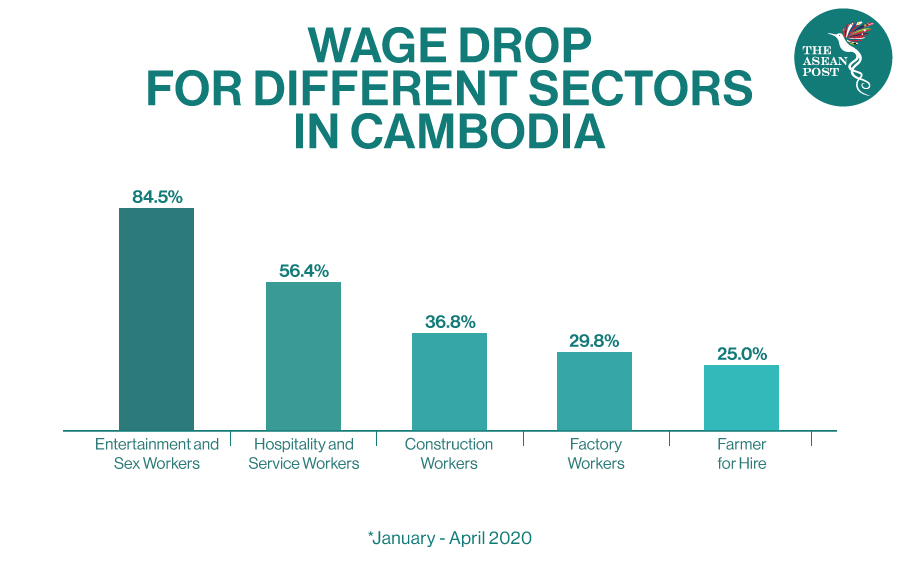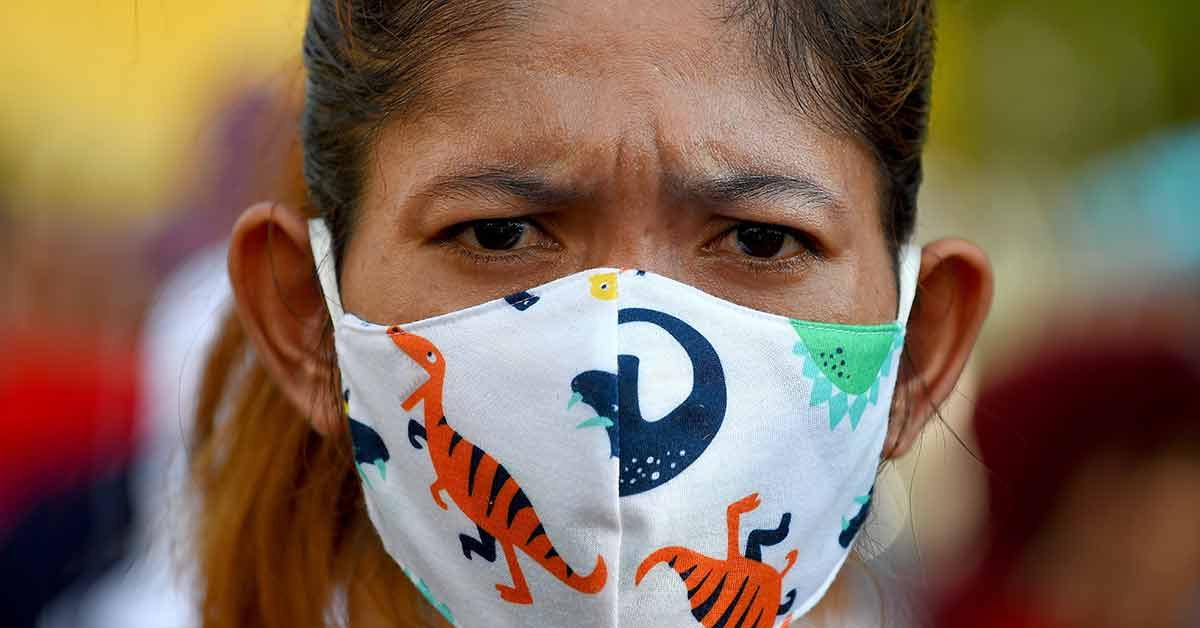Nine months have passed since the COVID-19 virus first emerged in Wuhan, China – and the world is still in the midst of containing the deadly outbreak. Over 28 million people across the globe have contracted the disease and more than 900,000 – inching towards a million have perished due to the deadly coronavirus.
The pandemic is not just threatening lives but has also severely affected businesses, local industries and the economy in general. Millions have lost their jobs, struggling with depression and anxiety as they are trapped in financial constraints and burden. Even Cambodia – which has reported relatively low cases of COVID-19 infections compared to other nations in the region – is feeling the pinch from the pandemic.
As of 11 September, ASEAN member state Cambodia has recorded 274 cases of the coronavirus, with zero fatalities. In fact, 273 or 99 percent of those infected have recovered, leaving only one patient currently under treatment. However, some observers believe that the number of infections in the country could be greater than officially reported.
Despite the low number of infections in the kingdom, the lives of Cambodians have still been hit hard by the crisis.
The Asian Development Bank (ADB) has projected that more than 300,000 people in the ASEAN member state will suffer from job losses this year due to the pandemic.
“Cambodia is facing an unprecedented challenge from COVID-19. The recession in Cambodia will put pressure on poor and vulnerable groups and the ADB estimates that the coronavirus will lead to 390,000 job losses this year,” said ADB country director Sunniya Durrani-Jamal.
Decreased Income
A recent study conducted by Cambodia-based think tank Future Forum, and Angkor Research and Consulting found that overall salaries across Cambodia have declined by around 30 percent in just four months, between January and April 2020.
The report titled, “The Effect of COVID-19 on Wage Workers” found that those working in entertainment as well as sex workers have reported an 85 percent decrease in income.

Other than that, the study revealed that one in four workers did not receive any salary in April.
“Workers without a formal contract had lower wages than formal workers before the pandemic and this gap has widened further between January and April,” the report stated.
Amid the pandemic, concerns have been raised about the well-being of informal workers as they sometimes lack access to a lot of the support needed to cope with the COVID-19 downturn, stated the World Economic Forum (WEF).
Informal workers are also less likely to have their own “financial cushion”, as the International Labour Organization (ILO) says, leaving them with the stark choices: “’To die from hunger or from the virus’ is the all-too-real dilemma faced by many informal economy workers.”
“Similarly, workers with low or no education had far larger salary reductions than those with higher education. There were also significant differences by geography and employment sector. Workers in the provinces generally reported larger reductions in salary than those in Phnom Penh,” wrote Future Forum and Angkor Research and Consulting in their report.
“Finally, workers in the agricultural sector reported a 25 percent reduction in income compared with entertainment and sex workers who reported an 85 percent decline in income,” it added.
It can be argued that among the first industries to be reeled by the virus were the tourism and hospitality sectors. Thong Khon, Cambodia’s Tourism Minister told local media that the kingdom may lose about US$3 billion in tourism revenue this year as tourist arrivals to the country dropped sharply due to the impact of the pandemic.
Many Cambodians who depend on tourism – those working in hotels, spas, restaurants, tour services – for their livelihoods have lost their income. The study by Future Forum and Angkor Research and Consulting found that those in hospitality have experienced a 56 percent reduction in income amid the crisis.
Other workers suffering from a decreased salary include construction workers, factory workers such as those in the garment industry and farmers for hire.
In response to the economic fallout of COVID-19, the Cambodian government has implemented its “IDPoor” programme to pay US$25 million per month to more than 500,000 poor and vulnerable families.
The action taken has been praised by organisations such as the ADB.
“COVID-19 will also exacerbate the vulnerability of the poor, given the limited diversification of income sources. Social protection will be crucial to preventing a large increase in poverty and we congratulate the government on creating a US$300 million budget for cash transfers in its policy response,” said Durrani-Jamal.
Cambodia’s Ministry of Economy and Finance said that the government has so far distributed US$78 million to poor families suffering as a result of the pandemic.
Related Articles:
